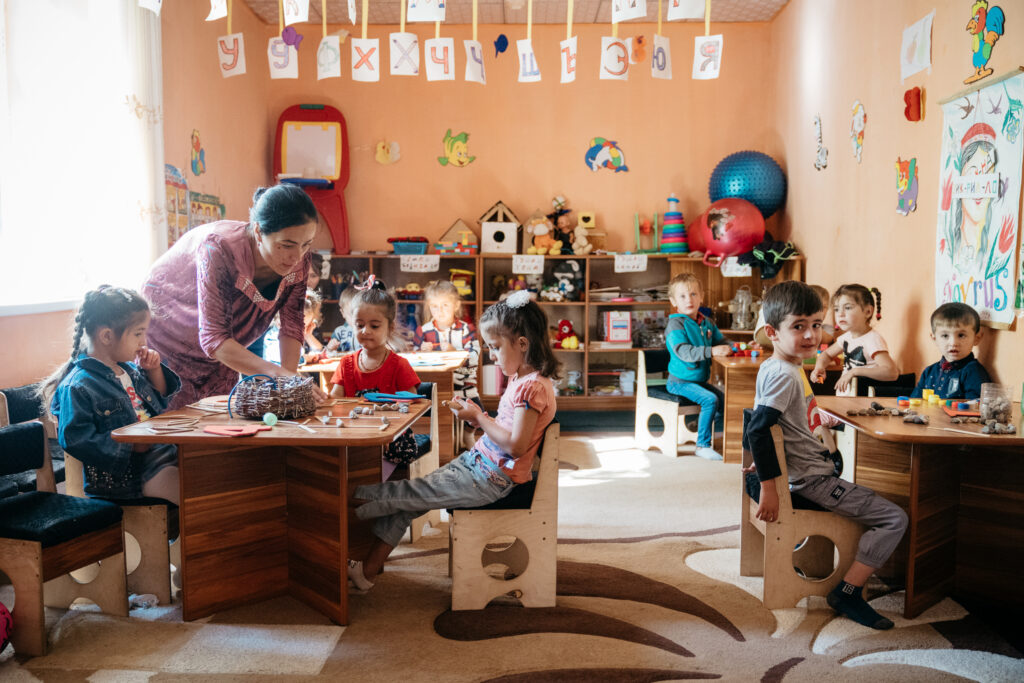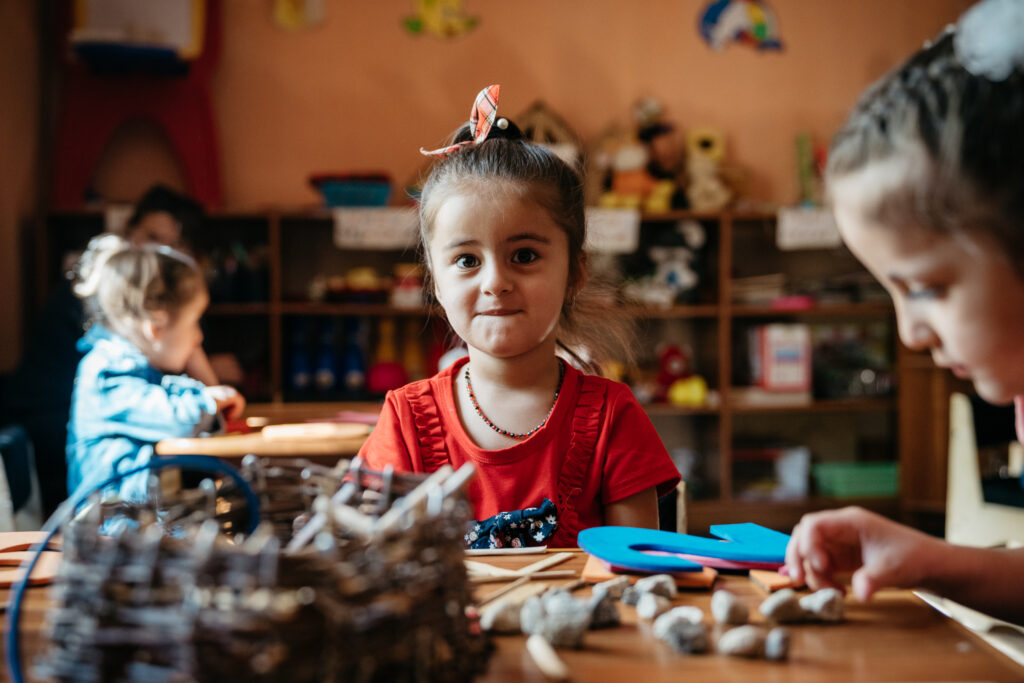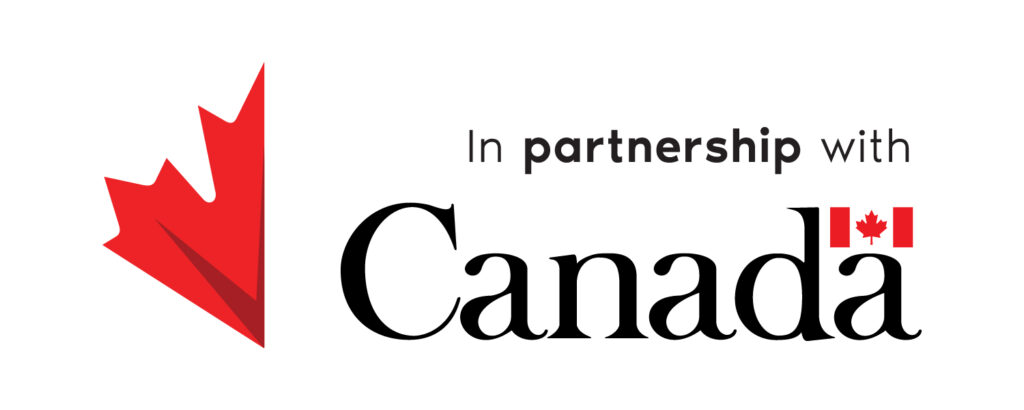Research shows that 80% of a child’s brain development occurs within their first 1,000 days of life – making this a critical period for establishing the foundations of health and development for the rest of their lives.

This window of opportunity sets the stage for all future growth, influencing a child’s survival and health, physical well-being, and cognitive, emotional, social, and language development. In many countries, gender inequality means that girls often receive lower quality care and attention, growing up with disadvantages that have lifelong implications.
In Tajikistan, we help build strong and inclusive systems for early learning, supporting educators, parents, and community members in raising healthy, happy children. Early childhood development (ECD) hubs, supported by Canada, bring together teachers, parents, and specialists to find solutions to challenges faced by local communities – like ensuring that girls and boys have access to nutritious and wholesome food.

In Tajikistan, parents work together to support their children’s ECD centres and help prepare nutritious meals, and volunteer to distribute, supervise, and clean up during mealtimes.
Having access to early childhood development experts has also helped parents learn how to support their children at home. Through programs like skills development sessions, parents learned about the importance of play in the physical, social, and language development of their children, and now seek out time to play with their kids at home.
It takes a village to raise a child. Through local ECD hubs, parents, teachers, and community members are given the tools and support they need to raise their children as they grow, learn, and develop.

